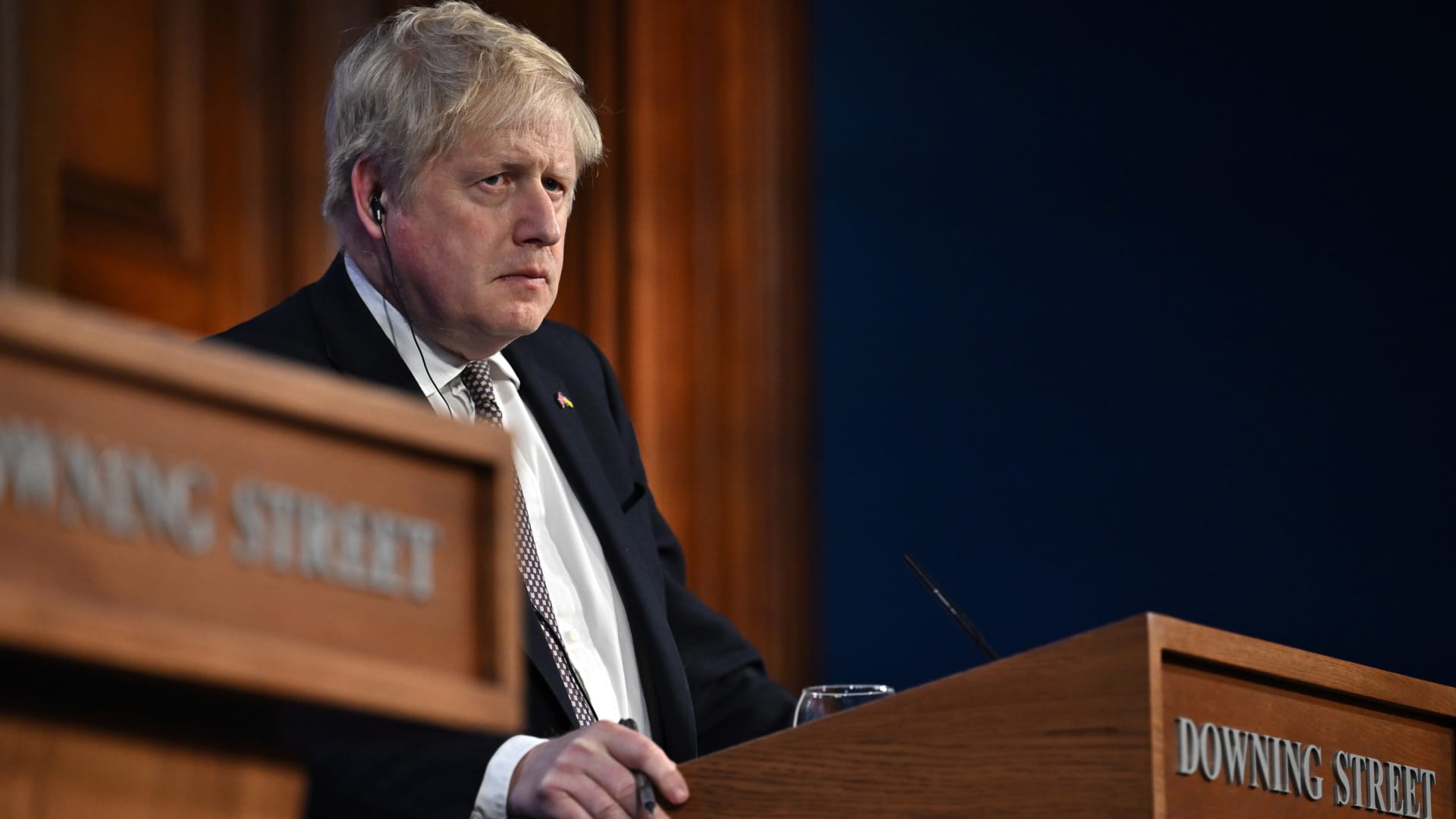
The U.K.’s Prime Minister Boris Johnson will face a vote of confidence later on Monday amid increasing dissatisfaction in his leadership.
To trigger a vote of confidence, 15% of Conservative lawmakers (or 54 of the current 359 Conservative Party MPs) are required to write letters to Graham Brady, chairman of the 1922 Committee which oversees the party’s leadership challenges.
On Monday, Brady announced that threshold had been exceeded and that he had informed the prime minister Sunday night that a vote would take place.
The vote is scheduled for Monday evening local time, and between 6 p.m. and 8 p.m. London time (1 p.m. and 3 p.m. ET.)
Last month a report into several high-profile Covid-19 lockdown-breaking parties at Johnson’s office and residence was released, sparking calls for a confidence vote.
Soon after the confidence vote was announced, a Downing Street spokesperson released a short statement saying that the vote tonight “is a chance to end months of speculation and allow the government to draw a line and move on, delivering on the people’s priorities,” Sky News reported.
The statement added that the prime minister welcomed the opportunity to make his case to lawmakers, and “will remind them that when they’re united and focused on the issues that matter to voters there is no more formidable political force.”
Some senior Conservative lawmakers have already thrown their support behind the prime minister. Foreign Secretary Liz Truss tweeted Monday that Johnson had her “100% backing” in the vote.
“He has delivered on covid recovery and supporting Ukraine in the face of Russian aggression. He has apologised for mistakes made. We must now focus on economic growth,” she said. Chancellor Rishi Sunak also backed the prime minister.
If Johnson wins the vote, he will be protected from another vote of confidence for another 12 months, although there have been previous reports that these rules could be changed. On Monday, Sir Graham Brady told reporters that while “technically” it’s possible for rules to be changed, “the rule at present is there would be a period of grace” before another vote takes place.
If Johnson loses the vote, he will be forced to step down and a Conservative leadership contest will begin. In that eventuality, Johnson, as an ousted leader, will not be allowed to stand.
Johnson could also resign of his own accord, but despite previous rumblings of discontent among Tory MPs over Johnson’s colorful, and often controversial leadership, he has shown no signs of intending to do so.
Nonetheless, Johnson’s public standing is a source of concern for many Tory MPs, wary of the British public’s perception of the Conservative Party and its leader.
On Friday, TV footage showed crowds of people booing Johnson as he arrived at St Paul’s Cathedral in London for a thanksgiving service in honor of Queen Elizabeth II and her 70 years on the throne, a milestone marked over the past four days with Platinum Jubilee celebrations across the U.K.
Conservative peer Robert Hayward told Sky News on Monday that the footage could have had an impact on Conservative MPs, influencing them to submit letters to Sir Graham Brady.
Brady himself said on Monday that some Tory lawmakers had submitted letters to him before the Platinum Jubilee celebrations had begun, but requested that their letters not be counted until after the weekend so as not to interrupt the festivities which ended on Sunday.




